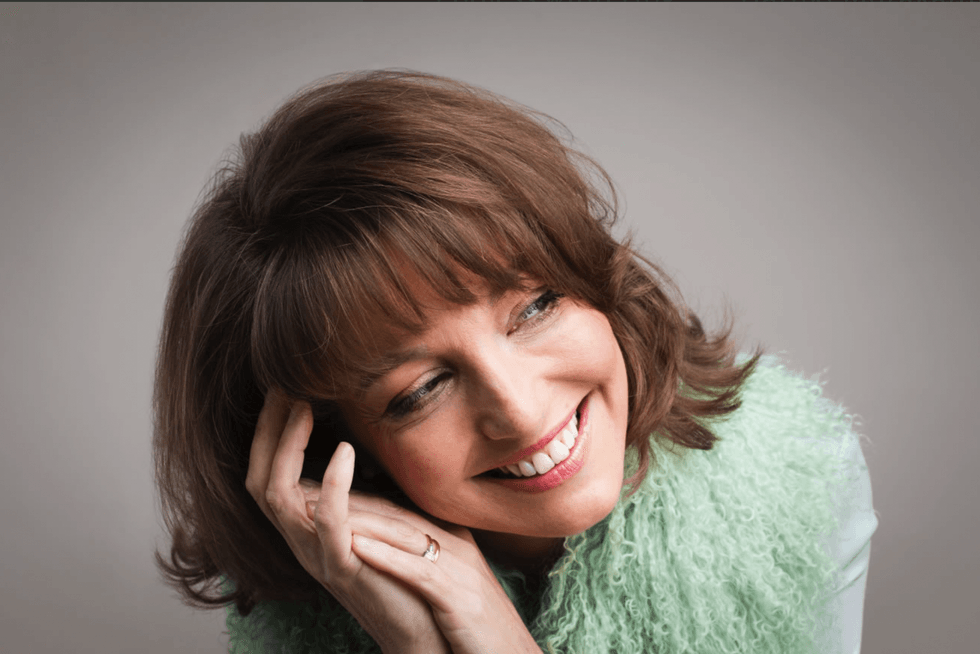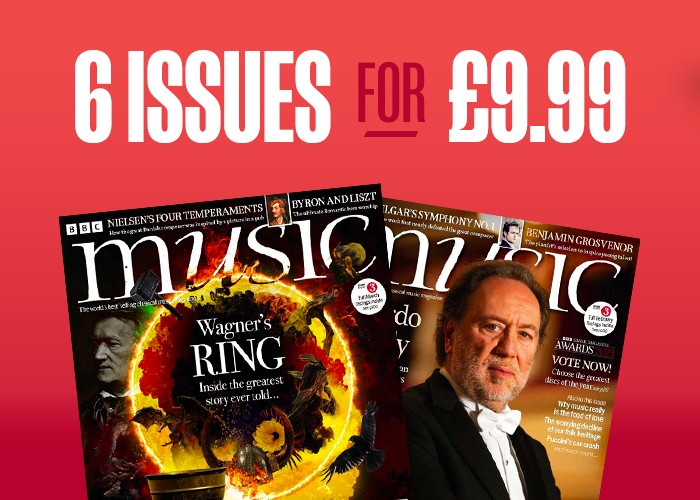Coronation: the 12 new commissions unveiled
Overtures, organ works, and the first-ever Welsh-language performance at a British Coronation: here's all you need to know about the 12 special commissions for Charles's coronation

More details have been revealed about the 12 brand new pieces, from composers including Judith Weir, Roxanna Panufnik and Andrew Lloyd Webber, which have been commissioned for the Coronation of King Charles.
- Browse all our Coronation stories: composers, performers and more
As we revealed in a previous article, Charles has been an active supporter of classical music for many years. A lifelong music enthusiast and champion of the arts, His Majesty has overseen, influenced and been personally involved in the commissioning process and the detail of the music programme, which will showcase and celebrate musical talent from across the United Kingdom and further afield.
The musical commissions offer contemporary interpretations of centuries of musical tradition, bringing together world-class composers from across the classical, sacred, film, television and musical theatre fields. Their compositions span the different musical forms, including orchestral, choral and solo voice works.
What works will be performed just before the Coronation Service?
Six of the new commissions have been composed for orchestra and will be performed before the Service, prior to Their Majesties’ arrival at the Abbey, complemented by a programme of mainly British music spanning 350 years.
The first pre-service commission will be a short overture composed by Judith Weir, Master of The King’s Music. Titled ‘Brighter Visions Shine Afar’, Weir's piece will mark the very first performance by the specially-formed Coronation Orchestra.
Speaking about the significance of the composition, Weir said: 'The opening passage highlights the horns, an instrument historically associated in music and art with nobility. The title borrowed from the Christmas hymn 'Angels from the Realms of Glory' and the optimistic rising scales of the music suggest renewal and hope for the future.'
Membership of the Coronation Orchestra comes from eight leading orchestras of the former Prince of Wales’ Patronages, from across the UK and Canada. These are the Philharmonia Orchestra, Royal Philharmonic Orchestra, BBC National Orchestra of Wales, Regina Symphony Orchestra (Saskatchewan, Canada), English Chamber Orchestra, Scottish Chamber Orchestra, Royal Opera House Orchestra and Welsh National Opera Orchestra.
- The best orchestras in the world
- Royal Philharmonic Orchestra re-records McDonald's jingle for Queen's Platinum Jubilee
The Coronation Orchestra is conducted by Antonio Pappano, Music Director for the Royal Opera House. and is led by Vasko Vassilev, Principal Guest Concert Master at the Royal Opera House Orchestra.
The Coronation Orchestra will be joined by the Royal Harpist Alis Huws, for Sir Karl Jenkins’ ‘Tros y Garreg (Crossing the Stone)’. Reflecting the King’s long-standing support of Welsh culture, the piece is a new arrangement of Jenkins’ setting of a Welsh folk song, and uses a combination of harp and strings.
The piece was originally commissioned by the then Prince of Wales over two decades ago. As The Prince of Wales, The King revived the traditional role of the Royal Harpist in 2000.
The pre-coronation service music will continue with a rendition of 'Sacred Fire' by composer Sarah Class, performed by acclaimed South African soprano Pretty Yende.
A composer working across both classical and film music, Sarah Class was commissioned by the former Prince of Wales in 2021 to compose the anthem for His Majesty’s Terra Carta environmental initiative. ‘Sacred Fire’ conjures imagery from the Bible with its powerful lyrics. Through music, the composition evokes a bridge between the angelic and human realms.
The next musical items are three contemporary musical responses to the much-loved Irish hymn ‘Be Thou my Vision', one of His Majesty's favourite hymns. For ‘Be Thou my Vision - Triptych for Orchestra’, composers Nigel Hess, Roderick Williams and Shirley J Thompson have each created their own orchestral interpretation of the hymn, and woven them together into a single work.
- Best hymns of all time
- What were the Queen's favourite hymns?
- The best school hymns that we loved to sing
The pre-coronation ceremony continues with a commissioned organ work by composer Iain Farrington, who is perhaps best known for his 2020 commission Beethoveniana. Written for the First Night of the Proms and for the 250th anniversary of Beethoven's birth, Beethoveniana is a six-minute orchestral piece combining themes and motifs from all nine Beethoven symphonies. It was performed by all five BBC orchestras and the BBC Singers, with an accompanying film.
Earlier this year, His Majesty paid tribute to the diversity of the Commonwealth, and Farrington’s organ commission ‘Voices of the World’ is a celebratory, joyful musical offering which combines traditional tunes from across the family of nations. The music is 'all mixed together in a joyful, jazzy and dance-like character,' says Farrington, who hopes 'it will get people's toes tapping!'
More like this
The last musical element of the pre-coronation service will be the ‘King Charles III Coronation March’ by the acclaimed film composer Patrick Doyle, known for his work on Harry Potter and the Goblet of Fire among others. Composed to celebrate the life of His Majesty, the March will commence with a bold, heraldic opening, which is ceremonial and full of pageantry. The following section moves forward at pace, reflecting the passing of time, and carrying a strong Celtic influence.
The third part of the March is joyous, before a romantic and reflective sequence which will build to a triumphant finale. Speaking about the March, Patrick Doyle said: 'The composition can be described as an Overture March in that it tells a story, and at times reflects aspects of His Majesty’s own character. Overall, the piece is jubilant and uplifting. It is written to embrace the excitement and celebration of the historic day.'
What works will be performed during the Coronation Service?
Next, we move on to the music to be performed during the main Coronation Service itself.
This musical programme will be directed by Andrew Nethsingha, organist and Master of the Choristers of Westminster Abbey. It will feature the combined choral forces of the Choir of Westminster Abbey and The Choir of His Majesty’s Chapel Royal, St James’s Palace. They will be joined by girl choristers from Truro Cathedral and Methodist College, Belfast, and singers from the Monteverdi Choir.
A series of fanfares marking ceremonial moments in the Service has been specially written for the occasion by Christopher Robinson, and will be performed by the Fanfare Trumpeters of the Royal Air Force, conducted by Wing Commander Piers Morrell.
- Which military bands will play at the coronation?
- The history of the brass band: how brass bands began and why they remain popular
Next, we will hear the first-ever Welsh language performance at a Coronation. The 'Coronation Kyrie’ by Welsh composer Paul Mealor will be sung by Paul's compatriot, the bass-baritone Sir Bryn Terfel, and the Choir of Westminster Abbey. On the inspiration for his composition, Mealor said: 'It is a meditative, introspective piece based on a blend between Gregorian chant and ‘Cerdd Dant’ (Welsh Penillion singing – an important part of eisteddfodau).
- Welsh songs: 7 traditional Welsh folk songs you can't help singing along to
- Welsh hymns: the most beautiful religious songs from Wales
'I was inspired by the great Welsh tunes– Aberystwyth, Cwm Rhondda ('Guide Me, O Thou Great Redeemer'), Ar Lan Y Môr – and the composition is coloured by the harmonies of these songs. It is a cry from the deep soul of the hills and valleys of Wales for hope, peace, love and friendship.'
The next commission we will hear is ‘Alleluia (O Clap your Hands)’ and ‘Alleluia (O Sing Praises)’, a two-part commission by award-winning TV and film composer Debbie Wiseman. ‘O Clap Your Hands’ will be sung by the expanded Westminster Abbey Choir, while ‘O Sing Praises’ will be performed by The Ascension Choir, the first gospel choir to sing at a Coronation.
Among many other TV and film scores (Wilde, Wolf Hall), Debbie Wiseman wrote the music for the official coverage of the passing of Her Majesty Queen Elizabeth II. The piece, entitled 'Elizabeth Remembered', proved very popular with viewers. Performed by the BBC Concert Orchestra with Debbie conducting, it was released as a single by Silva Screen Records, with all proceeds going to The Queen’s Commonwealth Trust.
Next, we have ‘Make a Joyful Noise’, a Coronation Anthem by the world-renowned musical theatre composer Andrew Lloyd Webber. 'I had the good fortune to discuss the text with His Majesty The King,' Lloyd Webber reveals. 'We discussed the writings of Solomon and I suggested adapting Psalm 98 with its message of “Make A Joyful Noise unto the Lord, the King". It seems so appropriate to the moment in the Coronation service.'
The penultimate specially commissioned work is the ‘Coronation Sanctus’ by composer Roxanna Panufnik (pictured top). Introducing her piece, Roxanna says: “The piece starts a little mysteriously with an atmosphere of awe and wonderment as Isaiah describes his vision of heaven. The music quickly builds and finishes ecstatically, with organ fanfares and flamboyantly colourful harmonies.”
The last of the 12 specially commissioned pieces is an 'Agnus Dei' written by Anglo-American composer Tarik O’Regan. Charles first heard O'Regan's music at Lincoln Cathedral in 2006, and was so impressed that he asked the composer to write the ‘Agnus Dei’ for a reflective moment during the Coronation Service.
Tarik O’Regan said: 'I wanted to explore influences from my own varied heritages within the context of the Agnus Dei in the British choral tradition. So, a unison melody is slowly fragmented to create myriad timbres, much as one might hear in some Arab or Irish traditional music.
'This melodic shifting is also reminiscent of 'phase music', strongly connected with San Francisco, where I wrote this work. Finally, there is an alternating verse anthem structure: a nod to Orlando Gibbons, who became Organist of Westminster Abbey exactly 400 years ago.'
Authors

Steve has been an avid listener of classical music since childhood, and now contributes a variety of features to BBC Music’s magazine and website. He started writing about music as Arts Editor of an Oxford University student newspaper and has continued ever since, serving as Arts Editor on various magazines.




